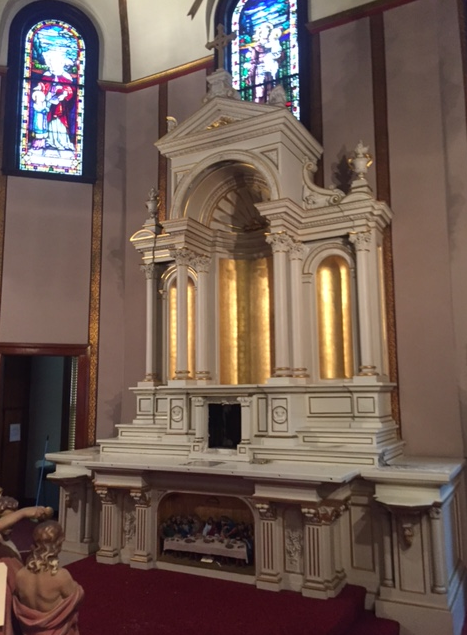– Corrado Gnerre
I am an old Catholic. I attend Holy Mass daily. I notice many modernist novelties, which I cannot share because I have attended the Masses celebrated by Padre Pio in San Giovanni Rotondo for many years in my life. Now I can’t explain why, in the churches run by modernist parish priests, the central tabernacle was practically abolished by transferring the Eucharist to the tabernacle of a side chapel. Do they do it for greater worship?
No, dear …, it is not at all for greater adoration; but for a reason that we could conversely define: “for lesser adoration.” This too, in fact, is yet another sign of the Protestantization process that the Catholic Church has been undergoing for several decades now. And it is known that for the Protestant world the Eucharist is either a simple symbol, or it would express (as consubstantiation and not as transubstantiation) the real presence, but only at the time of the banquet rite and with the presence of the faithful.
Dear friend, some time ago I already had the opportunity to write that we are now in a context in which presence is replaced by memory. Presence in terms of sacramental theology means re-actualization. Let us not forget that the Catholic Mass is first of all the renewal in a true, even if bloodless, way of the Sacrifice of Calvary. But all this must “protestantically” disappear or at least go into the background. And so, after removing the centrality of the Cross, for some time now we have also passed on to removing the centrality of the tabernacle.
But as God has taught since the beginning, his forgetfulness desired by men is not reflected against him, but on men themselves. The churches, by now, dear …, have become places of absence, and not only for what we are talking about; but because now they are frequented by few. How many times do we come to know of the sale of religious buildings because they are now unusable due to the scarcity of the faithful or/and the scarcity of priests? We want to put aside the presence and now the consequences are being paid: absence dominates on all fronts.
Dear friend, it obviously won’t end this way. The Lord is ready to readjust everything, but he wants our collaboration. First, it demands our good intention to serve and sanctify ourselves. And then our effort to preserve the seed of faith. To Don Camillo’s question on what should be done, Christ replied: “What the peasant does when the river overwhelms the banks and invades the fields: the seed must be saved. When the river has re-entered its riverbed, the earth will re-emerge and the sun will dry it. If the farmer has saved the seed, he can throw it on the earth made even more fertile by the silt of the river, and the seed will bear fruit, and the turgid and golden ears will give men bread, life, and hope. The seed must be saved: faith. Don Camillo, we must help those who still have the faith to keep it intact. The spiritual desert extends every day; every day new souls dry up because they abandon faith. Every day more men of many words and of no faith destroy the spiritual heritage and faith of others. Men of all races, of all backgrounds, of all cultures.” If we do this, God will ensure that what you, dearly …, rightly and legitimately yearn for will return to be the obvious characteristic of the Catholic Faith.
Best wishes.
(From La buona battaglia. Apologetica cattolica in domande e risposte, 2019©Chorabooks. Translated by Aurelio Porfiri. Used with the permission of the publisher. All rights reserved)


 Follow
Follow


